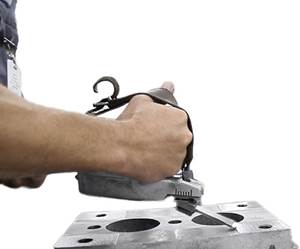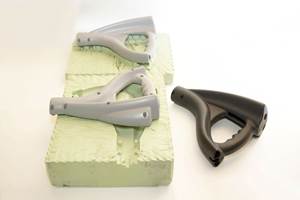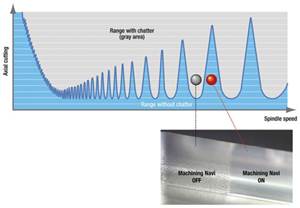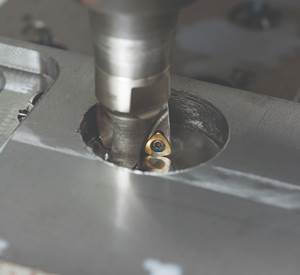Automation Investment Yields Speed and Flexibility
In 2004, Industrial Molds Group took the first steps toward integrating automation to reduce both costs and turnaround times.
Share
Read Next
Jack Peterson founded Industrial Molds Group in 1968. The Rockford, IL manufacturer serves a variety of industries, but automotive is the core segment that has driven the company’s substantial growth over the years. Jack has largely handed over the reins of the business to the next generation of management, a group that includes his son. Throughout the past 30 years, Tim Peterson has held a number of positions at Industrial Molds Group, ranging from apprentice to account manager to quality management. Now, as vice president, he is responsible for helping to carry on the company’s legacy in the midst of a business environment that is ever more demanding on American manufacturers.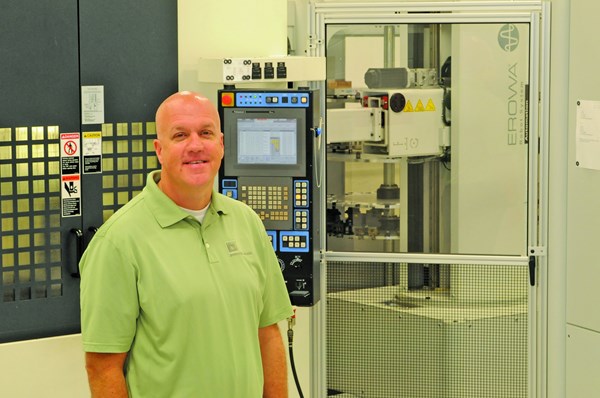
The present offers new opportunities and challenges for manufacturers serving the automotive industry. Even with the economy showing signs of recovery, there is much day-to-day uncertainty. Companies are moving production as close to the point of sale as possible and seeking to carry absolute minimum amounts of inventory. To do this, they are relying heavily on suppliers to be fast and reliable, with the flexibility to rapidly adapt to their needs. This can provide American manufacturers with a tangible advantage over offshore competition, but it also requires capabilities beyond those considered acceptable a decade ago. Additionally, while many companies are demanding levels of service that can only be provided domestically, a substantial number still reference overseas pricing.
“Several years ago, a new term emerged that we’re hearing quite a lot of these days: global pricing,” says Tim Peterson. “Ninety percent of the time that means they want American quality and leadtimes at prices comparable to China or other emerging markets.”
In general, Industrial Molds Group’s positioning philosophy has helped it to stave off foreign competition. Throughout its history, the company has differentiated itself by focusing on the most complex and demanding areas of the mold industry. Typical molds created by the manufacturer must produce parts with high tolerances and surface finish requirements. They usually require multiple actions, such as those completed by hydraulic slides or core pieces, and are often used with exotic materials, such as highly engineered resins. High running temperatures are also the norm, rather than the exception.
The level of skill and quality found in the work completed by Industrial Molds Group provides some insulation from overseas competition. The company estimates that countries with low labor costs can typically only achieve a 10 to 15 percent price advantage when producing a truly comparable product. That savings frequently comes with a trade off of longer leadtimes that customers find unacceptable. Still, many companies push for lower prices and some even cite unrealistic quotes from foreign manufacturers.
“Sometimes customers bring us quotes from China where the price for the finished part is below our material cost,” says Peterson. “Materials prices don’t vary that much from country to country. In those situations, a company’s either trying to buy work to establish a relationship or they’re cutting corners on quality. Despite that, it does put downward pressure on the prices we can charge. We constantly have to look for ways to reduce costs, while maintaining our strict levels of quality.”
Automation Integration
In 2004, Industrial Molds Group took the first steps toward integrating automation to reduce both costs and turnaround times. The company analyzed its workflow and determined that the EDM department was causing a significant bottleneck in its operations.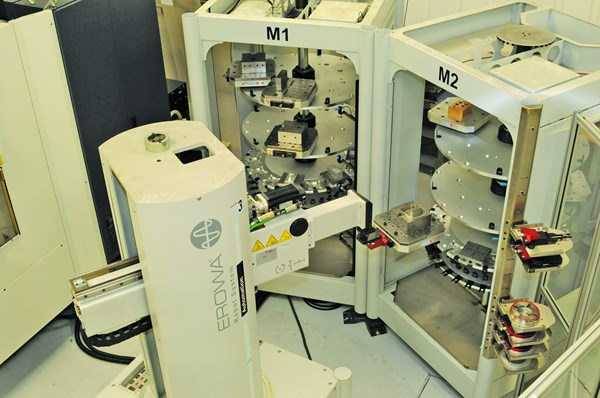
After examining several potential solutions, the decision was made to invest in two automation systems from EROWA:
1. EROWA Robot Multi System capable of holding up to 75 pallets was installed to serve a Mikron UCP 600 Vario high-performance machining center.
2. EROWA Robot System that holds both electrodes and workpieces was integrated with two GF AgieCharmilles FO 550 diesinking EDMs.
EROWA robots provide fast workpiece changing and highly efficient operation. In both cells, EWIS™ Rapid records magazine positions and communicates them to the cell computer, ensuring that the robot and operators can always quickly and easily identify the location of a specific component. All grippers and covers are stored outside of the workpiece magazine to guarantee the optimal use of available space. Industrial Molds Group is able to keep both cells running 24/7, allowing the company to maintain work during time periods when it would be economically unjustifiable to add additional shifts.
Automation Applied
A recent job illustrates Industrial Molds Group’s capabilities and how the EROWA automation cells have complemented them. An automotive manufacturer submitted quote requests to ten companies for a mold that would be used to create a fuel system component. Eight of those companies declined to participate in the process, claiming that the part as designed was beyond the current limits of technology to produce. Of the two remaining candidates, Industrial Molds Group was selected for the job.
Industrial Molds Group worked closely with the customer to design a mold capable of producing the part. The complex mold required substantial varied action, contained internal lifters, necessitated tight tolerances and had to be run at 275° F. Machined from H13 tool steel, the mold cavity required 120 electrodes. After being awarded the job, it took Industrial Molds Group 16 weeks to design the mold, obtain materials, produce electrodes, machine the parts and run a test version of the finished part to verify that the mold performed as needed. Without the EROWA systems, a month would have likely been added to the process.
“Not only do we get the extra productivity from running nights and weekends, but we save significant time on setups as well,” says Peterson. “Under our old system, we would have to periodically breakdown the setup, move the part to the CMM to confirm our accuracy, then set it back up on the EDM. With the EROWA system, we can just keep it on the pallet, transfer it to the CMM and bring it back to the EDM. Quantifying output used to constitute hours of the total production time and now it’s a matter of minutes.”
Further efficiencies are achieved through the use of EROWA’s Job Management System (JMS). This software automatically imports part programs, divides them into steps and controls the automation cells. In the past, operators had to manually touch off electrodes, input offsets and load the cutting program. The shop has eliminated these time-consuming, labor-intensive steps by now loading data directly into the cell via JMS.
It is estimated that the integration of the EROWA automation products, on average, has shrunk leadtimes by 20 percent and eliminated 15 percent of cost per component. Utilization rates have doubled for machines in the EROWA cells, and turnaround times have been greatly reduced. Perhaps the greatest evidence of the cells’ success is the fact that high-speed machining has replaced EDM as the bottleneck operations. As a result, Industrial Molds Group is presently integrating another EROWA Robot System, this time serving a Makino S56 vertical machining center.
Summary
“Despite the negative messages often found in the mainstream press, American manufacturing is alive and well,” explains Peterson. “If companies invest in technology that makes them fast and flexible, like the EROWA robot systems, they can reduce their own costs while increasing their capabilities. With the right combination of technology and expertise, it’s very possible to compete on a truly global scale.”
Related Content
The Benefits of Hand Scraping
Accuracy and flatness are two benefits of hand scraping that help improve machine loop stiffness, workpiece surface finish and component geometry.
Read MorePlastic Prototypes Using Silicone Rubber Molds
How-to, step-by-step instructions that take you from making the master pattern to making the mold and casting the plastic parts.
Read MoreHow to Eliminate Chatter
Here are techniques commonly used to combat chatter and guidelines to establish a foundation for optimizing the moldmaking process.
Read More6 Ways to Optimize High-Feed Milling
High-feed milling can significantly outweigh potential reliability challenges. Consider these six strategies in order to make high-feed milling successful for your business.
Read MoreRead Next
How to Use Strategic Planning Tools, Data to Manage the Human Side of Business
Q&A with Marion Wells, MMT EAB member and founder of Human Asset Management.
Read MoreHow to Use Continuing Education to Remain Competitive in Moldmaking
Continued training helps moldmakers make tooling decisions and properly use the latest cutting tool to efficiently machine high-quality molds.
Read MoreAre You a Moldmaker Considering 3D Printing? Consider the 3D Printing Workshop at NPE2024
Presentations will cover 3D printing for mold tooling, material innovation, product development, bridge production and full-scale, high-volume additive manufacturing.
Read More




_300x250 1.png;maxWidth=300;quality=90)











.jpg;maxWidth=300;quality=90)

